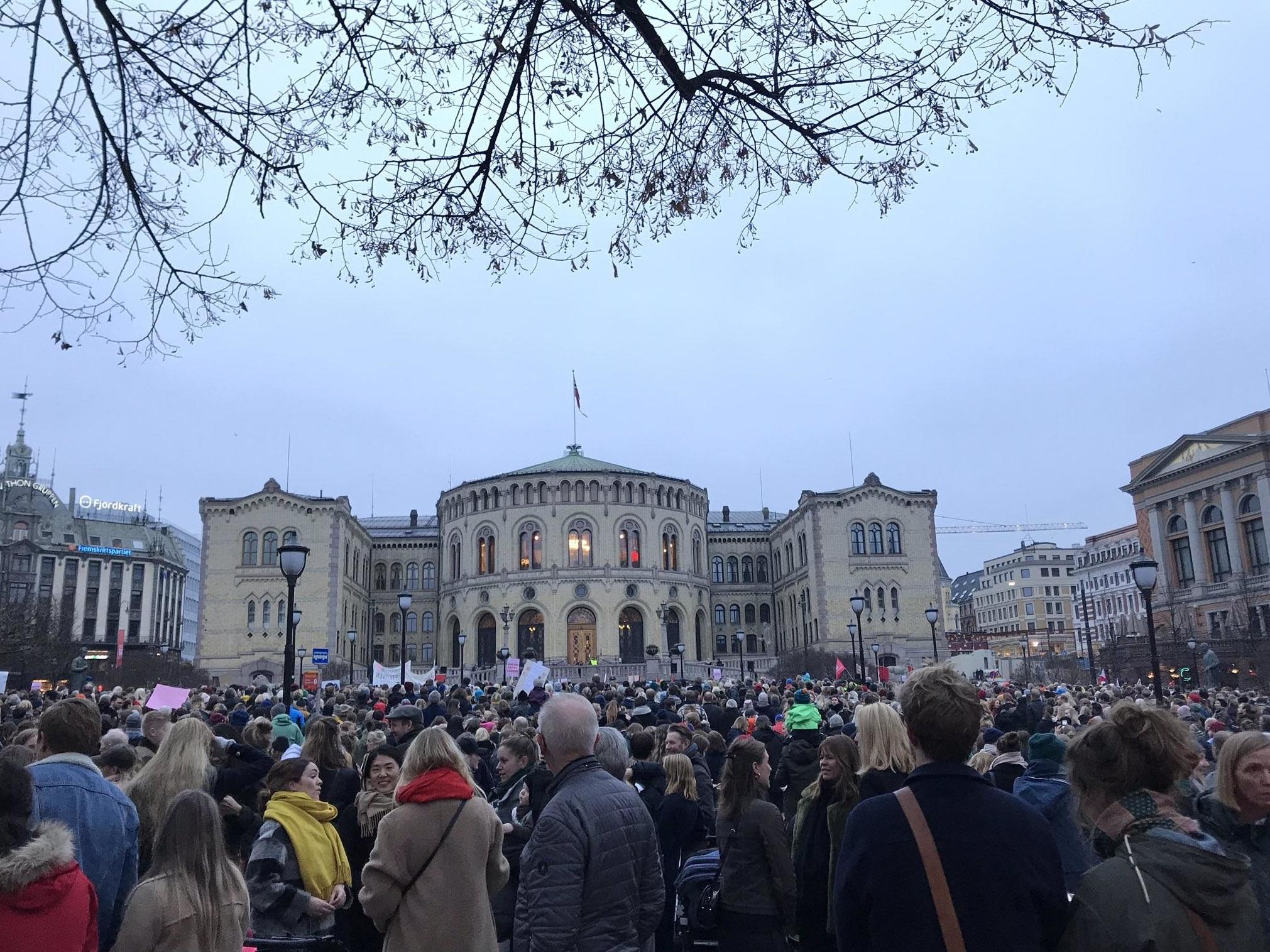Abortion demonstrations draw thousands across Norway after prime minister proposes tightening laws
Thousands joined demonstrations in cities around the country over politicians suggestion that abortion laws could be tightened

Your support helps us to tell the story
From reproductive rights to climate change to Big Tech, The Independent is on the ground when the story is developing. Whether it's investigating the financials of Elon Musk's pro-Trump PAC or producing our latest documentary, 'The A Word', which shines a light on the American women fighting for reproductive rights, we know how important it is to parse out the facts from the messaging.
At such a critical moment in US history, we need reporters on the ground. Your donation allows us to keep sending journalists to speak to both sides of the story.
The Independent is trusted by Americans across the entire political spectrum. And unlike many other quality news outlets, we choose not to lock Americans out of our reporting and analysis with paywalls. We believe quality journalism should be available to everyone, paid for by those who can afford it.
Your support makes all the difference.Thousands of Norwegians joined nationwide protests on Saturday as part of a backlash against proposals by the leader of the ruling coalition government which would tighten the country’s abortion laws.
Prime minister Erna Solberg, has suggested amending a key paragraph of existing legislation which allows abortions after 12 weeks where the child will have a “serious illness” like Down’s syndrome, or in some cases for multiple births.
Though not yet in legislation the move is seen as an attempt to win the support of the country’s Christian Democrats party, KrF, and give Ms Solberg’s right-wing coalition government an outright majority.
Demonstrations have taken place across 14 cities and 33 other sites according to the action group Kvinnefronten, which helped organise the protests.
“Once again, we see that the government uses women’s right to self-abortion as a negotiation card,” Kvinnefronten said on its website.
“Women across the country are pissed off. Now we have to go to the streets and give a clear message to the government not to touch the abortion act”.
Images posted by Women’s March Norway – part of the group that has led demonstrations around the world on women’s and reproductive rights, most famously in America after Donald Trump’s election – show large crowds outside the Storting, Norway’s parliament buildings in the capital, Oslo.
Another view, from a balcony overlooking the Storting square gives a better impression of the size of the crowd.
Brit-Agnes Svaeri, founder of Women’s March Norway attended the protest and told The Independent: “Most people are shocked, men and women – there were a lot of men attending as well.
“As the sign’s said at the marches, I cant believe women’s bodies are on the negotiating table as part of a political power game again.
“We [Norway] are supposed to be ahead of a lot of countries on these issues. Now we might go backwards, which is really demotivating for countries who haven’t got there.”
She added that Ms Solberg has previously said on television that it is not the police of her party, Høyre, to toughen abortion laws, which explains why it is being derided as political gamesmanship. Changes are also not widely backed by the other two parties in her coalition.
Another image, by Twitter user Amos Keppler shows a crowd packing out the main square in the large city of Bergen.
Analysis by the Aftenposten newspaper explains that in 2017 there were 12,700 abortions carried out in Norway and only around 2 per cent (287) were carried out after 12 weeks, the vast majority because of serious health conditions.
While the law also allows selective abortions of multiple births, these only accounted for around 20 procedures in the last two years, WMN said. These cases also typically involved at least one of the children having a health condition that could affect the pregnancy’s viability.
Norway’s three-month term limit for abortion is already significantly shorter than in the UK – which allows terminations without a medical reason up to 24-weeks – and the move would go against the trend of increasing liberalisation of laws in other European nations such as Ireland.
Join our commenting forum
Join thought-provoking conversations, follow other Independent readers and see their replies
Comments